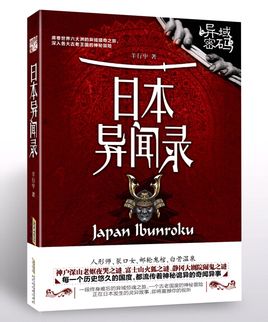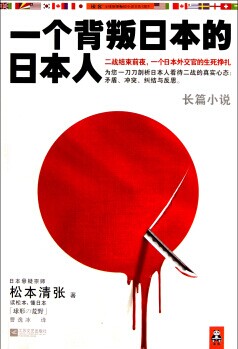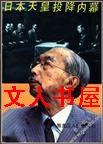�ձ���ѧϰ-��20����
�������Ϸ���� �� �� �� �ɿ������·�ҳ���������ϵ� Enter ���ɻص�����Ŀ¼ҳ���������Ϸ���� �� �ɻص���ҳ������
��������δ�Ķ��ꣿ������ǩ�ѱ��´μ����Ķ���
��������������ˤˡ��k�ؤε�혤̤��ơ���������
��������Sono��hito��ni��eki��e��no��michijun��o��oshie��te��age��ta��
��������I��showed��that��person��the��way��to��the��station��
����������Ϊ�Ǹ���ָ��ͨ����վ��·��
���������Ϣ�Ӥ�Ӣ�Z��̤��ơ����ޤ�����
��������Musuko��ni��Eigo��o��oshie��te��ya��ri��mashita��
��������I��taught��my��son��English��
���������ҽ��˶���Ӣ�
����������ӹ��ˤ��������I�äƤ�ä���
��������Kodomo��ni��omocha��o��ka��t��te��ya��t��ta��
��������I��bought��a��toy��for��my��child��
���������Ҹ�����������ߡ�
��
24�������ơ�����롣
��������������ˤϡ��k�ؤε�혤̤��ơ����줿��
��������Sono��hito��wa��eki��e��no��michijun��o��oshie��te��kure��ta��
��������That��person��showed��me��the��way��to��the��station��
���������Ǹ���Ϊ��ָ��ͨ����վ��·��
���������ѧ�����H�Ф˺����ߤ�ǡ�����ޤ�����
��������Gakusei��wa��shinsetsu��ni��nimotsu��o��hako��n��de��kure��mashita��
��������The��student��kindly��carried��my��baggage��for��me��
��������ѧ������ذ����������
��
25�������ơ���餦��
������������Ф���ϡ���������й��Z��̤��ơ���餤�ޤ�����
��������Tanaka��san��wa������san��ni��Ch��goku��go��o��oshie��te��mora��i��
��������mashita��
��������Mr����Wang��taught��Mr����Tanaka��Chinese��
���������������������������������ġ�
��������������ˤˡ��k�ؤε�혤̤��ơ����ä���
��������Sono��hito��ni��eki��e��no��michijun��o��oshie��te��mora��t��ta��
��������That��person��showed��me��the��way��to��the��station��
�������������Ǹ���Ϊ��ָ��ͨ����վ��·��
������������Τ��ȤϤ錄�������ˤޤ����Ƥ�餤�ޤ��礦��
��������Sono��koto��wa��watashi��tachi��ni��maka��se��te��mora��i��mash����
��������Just��let��us��handle��that��matter��
���������Ǽ��¾ͽ������ǰɣ�
��
26�������ơ�������
������������դγ���6�r�˳������ޤ���
����������ҹ�ʂ�Ƥ����ơ�����������
��������Ashita��no��asa��roku��ji��ni��dekake��masu����
��������Kon��ya��junbi��o��shi��te��o��i��te��kudasai��
��������We��will��set��out��at��six��tomorrow��morning����
��������So��please��make��preparations����for��it����tonight��
����������������6������������������������
������������դ�ԇ�Y�Ǥ����飬�㏊���Ƥ����ơ�����������
��������Ashita��wa��shiken��desu��kara����benky����shi��te��o��i��te��kudasai��
��������There��will��be��an��examination��tomorrow����So��please��study����to��
��������prepare��for��it����
����������Ϊ����Ҫ���ԣ���������ѧϰѧϰ��
27�������ơ��ߤ롣
����������ˤϱ�Ů�ˡ��ּ������ơ��ߤ���
��������Kare��wa��kanojo��ni��tegami��o��ka��i��te��mi��ta��
��������He��tried��writing��to��her��
�������������Ÿ���д��һ���š�
������������դ�Ӣ�Z��Ԓ���ơ��ߤޤ�����
��������Ky����wa��Eigo��o��hana��shi��te��mi��mashita��
��������I��tried��speaking��English��today��
�������������ҳ����Ž���Ӣ�
��
28�������ơ����ޤ���
����������з���o�����Ƥ��ޤä���
��������Kippu��o��naku��shi��te��shima��t��ta��
��������I��have��lost��my��ticket��
���������Ұ�Ʊ��Ū���ˡ�
���������������Ԓ���Ť�����Ƥ��ޤ��ޤ�����
��������Hashimoto��san��no��denwabang����o��wasure��te��shima��i��mashita��
��������I��forgot��Mr����Hashimoto��s��telephone��number��
���������Ұ��ű����ĵ绰��������ˡ�
����������ܤϥ��������ȫ����ʳ�٤Ƥ��ޤä���
��������Ot��to��wa��k��ki��o��zenbu��tabe��te��shima��t��ta��
��������My��younger��brother��ate��up��all��the��cake��
���������ҵĵܵܰѵ���ȫ���Թ��ˡ�
�������������С�h��һ�ݤ��i��ǡ����ޤ��ޤ�����
��������Kono��sh��setsu��o��ikki��ni��yo��n��de��shima��i��mashita��
��������I��finished��reading��this��novel��at��one��breath��
����������һ�����Ͱ��ⱾС˵�����ˡ�
����������
29���������Ԥ��У���
����������������L�ϣ���������Ф��ޤ���
��������Raish����wa����T��ky����ni��i��ki��masu��
��������I��will��go��to��Tokyo��next��week��
��������������ȥ������
��������������������Ԥ��У����ä���������Ǵʵ��𤬤��ä��餷���Ǥ��衣
��������T��ky����to��i��e��ba����sakki����T��ky����de����ki��na��jishin��ga��a��t��ta��
��������rashi��i��desu��yo��
��������Tokyo��It��is��said��that��there��was��a��strong��earthquake��there��a��
��������little��while��ago��
��������˵���Ļ�����˵����ոշ����˴����
����������������줫�����^���Ф�����˼����
��������Kore��kara��tosho��kan��ni��i��k����to��omo��u��
��������I��want��to��go��to��the��library��now��
���������������ȥͼ��ݡ�
����������������^���Ԥ��У�����ѧУ�·���^�ϣ�����������
���������뤽�����͡�
��������Tosho��kan��to��i��e��ba����kimi��no��gakk����no��tosho��kan��wa����hon��ga��takusan��a��ru��s����da��ne��
��������The��library��It��is��said��that��there��are��a��lot��of��books��in��your��
��������school��library����aren��t��there
��������˵��ͼ��ݵĻ�����˵����ѧУ��ͼ��ݲ��鲻�ٰɣ�
��
30���������Ԥ��Ƥ��롣
����������椦�ٴ���Ǵ���¤����ä����Ԥ��Ƥ��ޤ���
��������Y��be����saka��de��dai��kaji��ga��a��t��ta��to��i��wa��re��te��i��masu��
��������It��is��said��that��there��was��a��big��fire��accident��in��Osaka��last��night����
����������˵�����ڴ��淢����һ������֡�
���������ɽ�¤���ϥƥ˥������֤����Ԥ��Ƥ��ޤ���
��������Yamashita��san��wa��tenisu��ga��j��zu��da��to��i��wa��re��te��i��masu��
��������It��is��said��that��Mr����Yamashita��is��good��at��playing��tennis��
����������˵ɽ�¾����ó�������
����������
31���������Ԥ���
������������Ф���ϣ������ˡ����Ϥ褦�������ޤ������ȡ��Ԥä���
��������Tanaka��san��wa����sensei��ni��Ohay����gozaimasu��to��i��t��ta��
��������Mr����Tanaka��said����Good��morning����to��his��teacher��
�����������о�����ʦ˵�������簲����
������������Τɤ��f��������������ľ����ϡ��Ԥ��ޤ�����
��������Nodo��ga��kawa��i��ta��to��Sasaki��san��wa��i��i��mashita��
����������I��m��thirsty������said��Mr����Sasaki��
������������ľ��˵�����ҿ��ˡ���
����������
32�������Ȥ������Ȥϣ���
�����������ˡ����äƲ��ݤ��Τ��Ȥ������Ȥ����Ť���
��������Kami��ni��ino��t��te��by��ki��o��nao��su��to��i��u��koto��wa��meishin��da����
��������It��is��a��superstition��that��one��can��have��his��disease��cured��by��
��������praying��to��God��
������������ݷ����β�����˵�������š�
���������������ֱ���Ȥ������Ȥ��l�Ǥ�֪�äƤ��롣
��������Kimi��wa��sh��jiki��da��to��i��u��koto��wa��dare��demo��shi��t��te��i��ru��
��������Everybody��knows��that��you��are��honest��
�������������ֱ�����ʵ������֪��
��
33�����r����
���������ʳ�¤Εr���ձ��ˤϤϤ���ʹ����
��������Shokuji��no��toki����Nihon��jin��wa��hashi��o��tsuka��u��
��������Japanese��people��use��chopsticks��when��at��dinner��
���������Է�ʱ�ձ���ʹ�ÿ��ӡ�
����������ձ��ˤϣ�ʳ�¤�ʼ���r�������������ޤ������ȡ��Ԥ���
��������Nihonjin��wa����shokuji��o��hajime��ru��toki����Itadakimasu��to��i��u��
��������Japanese��people��say����Itadakimasu������when��they��begin��to��eat����
���������ձ��˿�ʼ�Է�ʱ˵���Ҳ������ˡ���
������������S���ژI�Εr�������ϡ��ԥ��Τ����ޤ�����
��������Ongaku��no��jugy����no��toki����sensei��wa��piano��o��hi��ki��mashita��
��������Our��teacher��played��the��piano��when��having��the��music��class��
�������������ֿ�ʱ����ʦ���˸��١�
������������Ф���ϣ���ɽ�˵Ǥä��r��д����ä���
��������Tanaka��san��wa����yama��ni��nobo��t��ta��toki����shashin��o��to��t��ta��
��������Ms����Tanaka��took��many��pictures��when��he��climbed��the��
��������mountain��
�����������о���ɽʱ������Ƭ��
����������
34�������Ȥ�������
������������ʳ�٤�Ȥ�������
��������Go��han��o��tabe��ru��tokoro��da��
��������I��am��just��going��to��eat��
������������Ҫ�Է��ˡ�
������������ʳ�٤ơ�����Ȥ����Ǥ���
��������Go��han��o��tabe��te��i��ru��tokoro��desu��
��������I��am��just��eating��
�������������ڳԷ���
������������ʳ�٤��Ȥ�������
��������Go��han��o��tabe��ta��tokoro��da��
��������I��have��just��finished��eating��
���������Ҹոճ��˷���
��
35�������Ȥ��ޤ�ʤ���
�������������ѧУ����ͽ�σ������Ȥ��ޤ�ޤ���
��������Kono��gakk����no��seito��wa��y��t����sei��towa��kagi��ri��masen��
��������The��students��at��this��school��are��not��necessarily��honor��students��
�����������ѧУ��ѧ��δ�ؾ�һ�����ŵ�����
������������蘆��ϣ������դˤ��Ĥ⤦���ˤ���Ȥ��ޤ�ʤ���
��������Ueda��san��wa����nichiy��bi��ni��itsumo��uchi��ni��i��ru��towa��kagi
����������ra��nai��
��������Mr����Ueda��is��not��necessarily��always��at��home��on��Sunday��
�������������δ���������һ���ڼҡ�
��
36�������Ĥ�����
������������ݤߤˡ����Ф���Ĥ�����
��������Natsu��yasumi��ni��ryok����suru��tsumori��da��
��������I��plan��to��go��on��a��trip��during��the��summer��vacation��
���������Ҵ������ȥ���С�
������������դ����ձ��Z���㏊��ʼ���Ĥ��Ǥ���
��������Ashita��kara��Nihon��go��no��benky����o��hajime��ru��tsumori��desu��
��������I��plan��to��start��my��Japanese��study��from��tomorrow��on��
���������Ҵ����������ʼ����ѧϰ��
��
37�����������ˣ���
��������������ʤ�ʤ������ˣ����롣
��������Kura��ku��na��ra��nai��uchi��ni����kae��ru��
��������I��will��go��back��before��it��gets��dark��
����������Ҫ�����컹û�ڻؼҡ�
���������⟤ϟᤤ�����ˣ���ơ�
��������Tetsu��wa��atsu��i��uchi��ni����u��te��
��������Strike��while��the��iron��is��hot��
�����������ȴ�����
��
38�������褦����
����������꤬����褦�Ǥ���
��������Ame��ga��fu��ru��y����desu��
��������It��looks��as��if��it��is��going��to��rain��
������������Ҫ��������ӡ�
�������������٩�������������Ƥ���褦����
��������Ereb��t����ga��koware��te��i��ru��y����da��
��������It��seems��that��the��elevator��is��broken��
���������������ݺ����ˡ�
��
39�������櫓����
������������������ơ����뤫�麮���櫓����
��������To��ga��a��i��te��i��ru��kara��samu��i��wake��da��
��������Naturally����it��is��cold��because��the��door��is��open��
�����������ǿ��ŵģ���Ȼ�����ˡ�
���������ѧ���ϣ��ߤ�ʤ�����ʳ�٤�櫓�Ǥ��͡�
��������Gakusei��wa����minna��soko��de��tabe��ru��wake��desu��ne��
��������Naturally����all��the��students��dine��there����don��t��they





